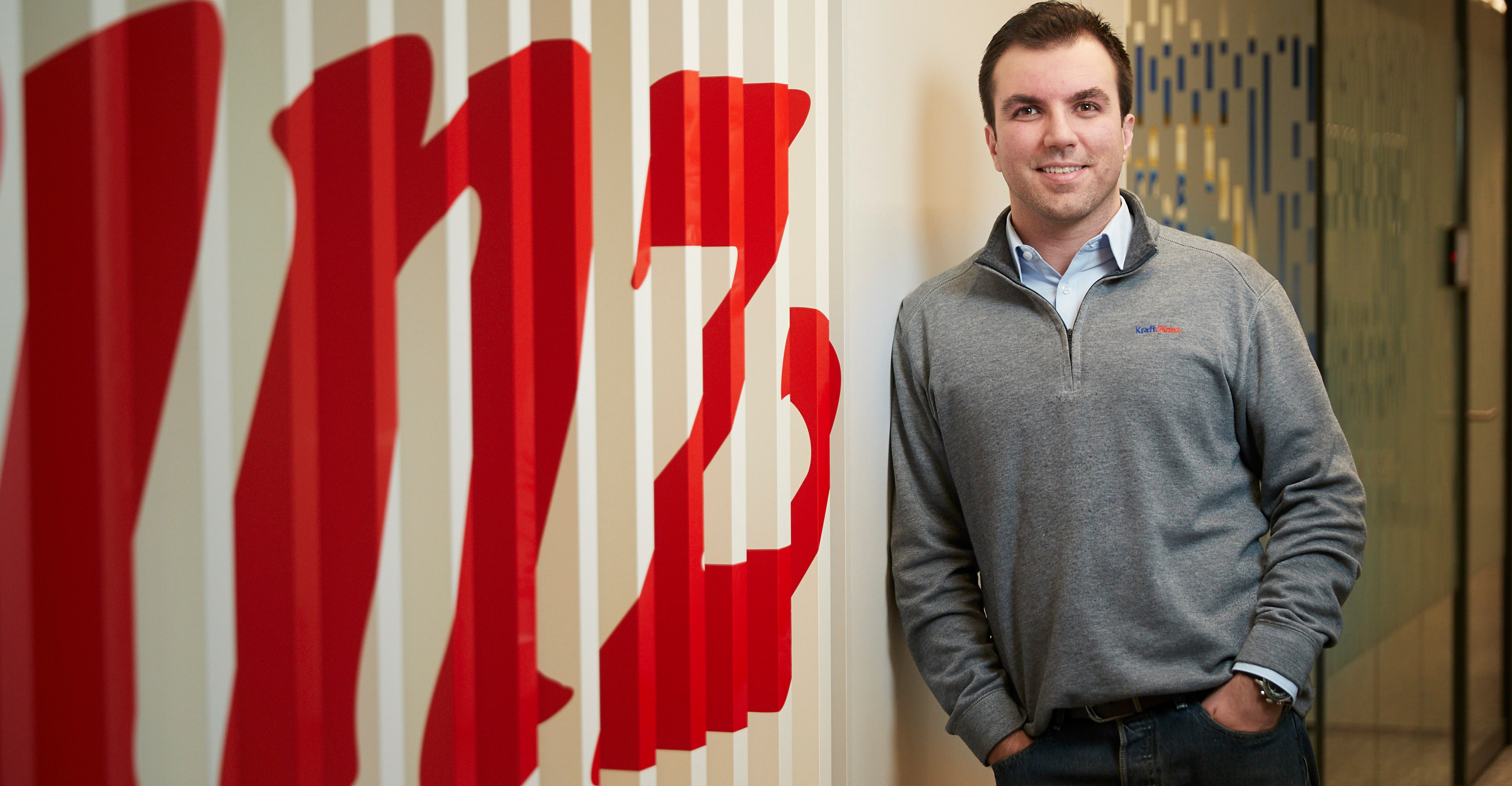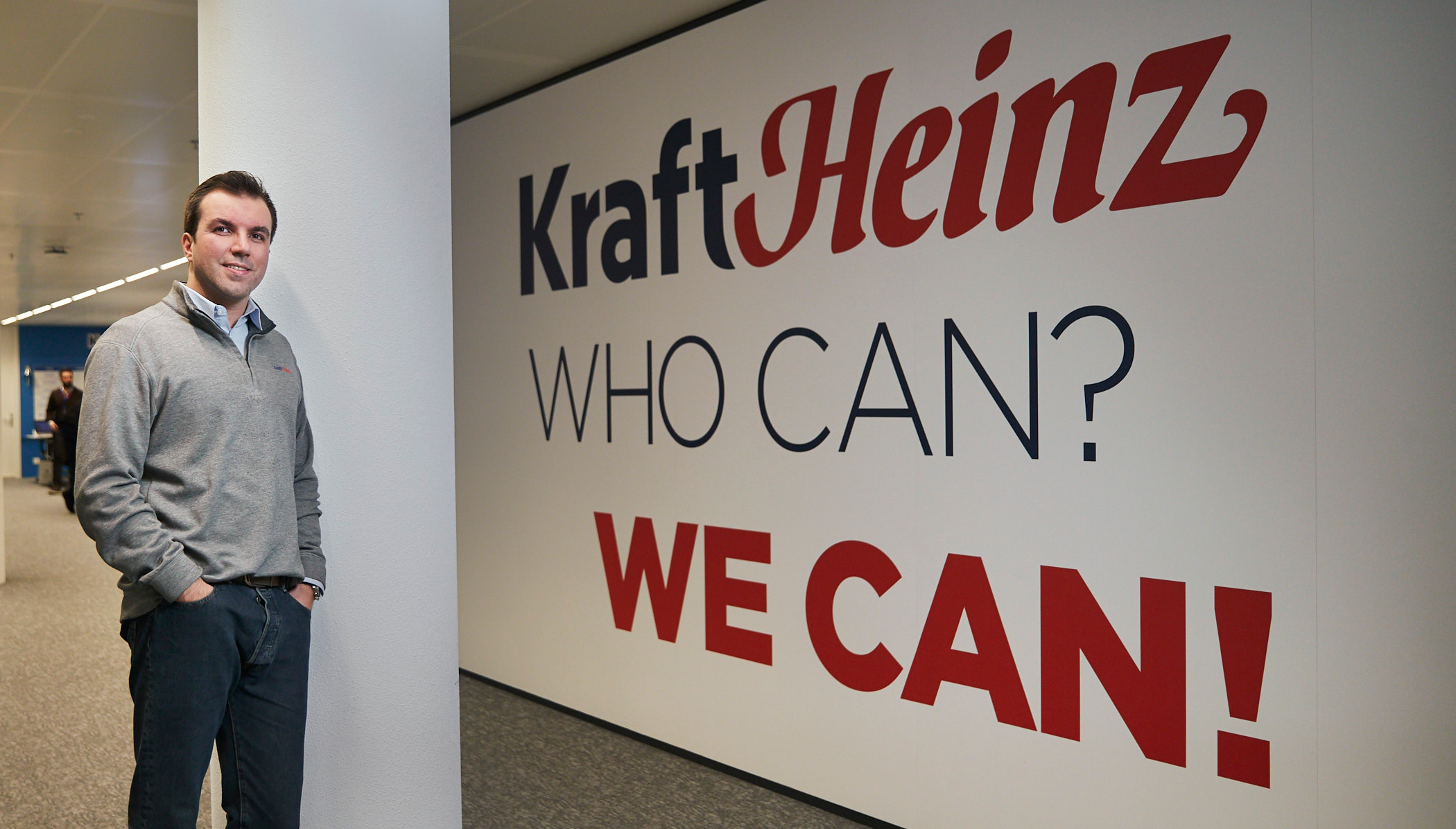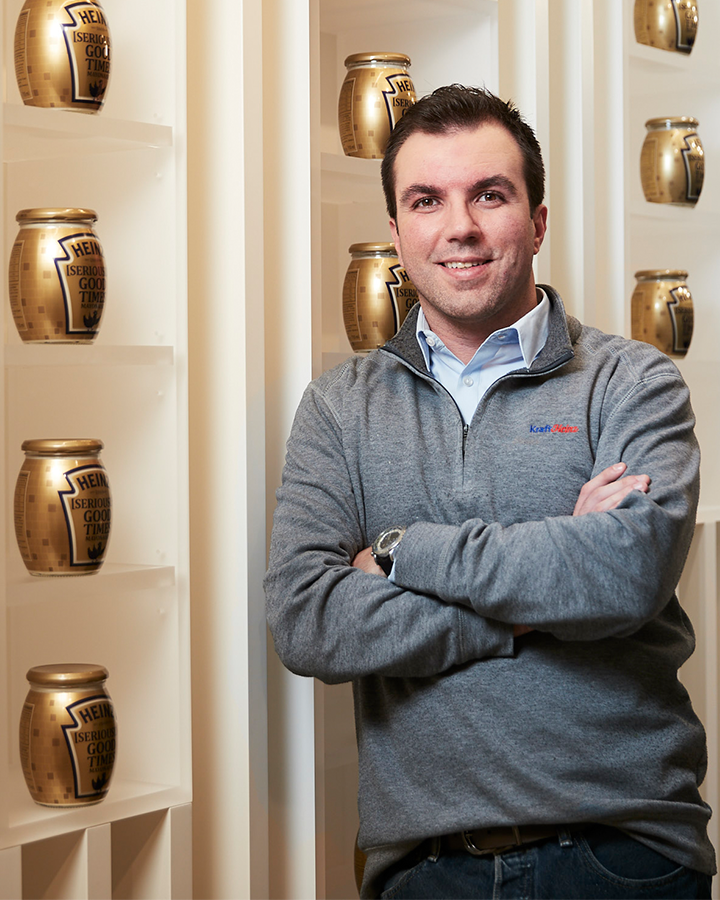
Interview with Carlos Faria
Published on: 04 Feb 2019
Carlos Faria, Managing Director Benelux at The Kraft Heinz Company
In 2018, Carlos Faria was able to take an immense leap in his career at Kraft Heinz. He was promoted to Managing Director Benelux at the age of 32. Carlos: “I’m not a one-off; it’s common in our company to give people a lot of responsibility early on their careers.”

How fast is fast?
“In terms of career, we believe everyone has their own pace. What we do is to support their development and make sure we don’t stop them from growing. Great people will take the speed and ownership we offer and transform it into strong performance and results. Those results will allow them to grow within the company. Take me, as an example. I started in 2013 as a Financial Manager and tried to grab every opportunity and support that I was offered. In 2018, the company made me Managing Director.”
“A good plan well-executed today is better than waiting for the perfect plan tomorrow.”
You believe in simplicity. Don’t you think business can be very complex?
“Of course it is. For example, in the Benelux, we work with more than 10 brands in over 10 categories.” Carlos gestures at a display featuring brands such as De Ruijter, Karvan Cevitam, and Brinta. “The trick is diving deep into these brands and categories, but being able to resurface with a concise conclusion. If you can’t simplify things, you’re not getting to the core of the matter, and that means you’re not able to take the right decisions. A lot of people mistake simple for easy, but they are two different things. Simple means that what you need to do is clear and concise. Whether it’s easy or hard to do is a different matter. Whether you’re in marketing or in supply chain finance, you need to be able to pinpoint what’s important. This is a valuable skill that people can learn here. It’s a skill they’ll be able to benefit from for the rest of their careers.”
Is it true that Kraft Heinz only focuses on cutting costs across all areas of the company?
Carlos shakes his head. “It’s a gross misconception that our company is only about cost-cutting and that we don’t invest in brands. I believe both statements are absolutely wrong. I don’t know where they come from, but clearly from people who don’t truly understand our culture from within.”
“Contrary to popular belief, our culture is not about cost-cutting.”
“Take zero-based budgeting, for example. It is a tool. Many companies use it, but without ownership, speed and simplicity, it’s meaningless. Costs have gone down because we treat the company’s money like our own and therefore cut unnecessary spending. We cut costs to be able to re-invest in the business, in the things that really matter and will make the difference. We’ve had a good year in 2018. For the first time in four or five years, the business is stable in terms of revenue. And 2019 is all about reinvesting in our brands.”
How has the company been able to make this turnaround?
“Because of our outside-in approach and asking ourselves the right questions. What do consumers want? How does that play into the trade? How do we make it happen internally? By asking the right questions, we have gained a better understanding of our consumers, our categories, and our role within the trade. That means that we know how we can help our trade partners grow with us, and it has enabled us to develop a stronger pipeline of innovation. For example, Karvan Cévitam 0% is doubling year on year.”
“We have come a long way on a global level. Kraft Heinz is much bigger, and much better, today than when I joined back in 2013.” Kraft Heinz was formed in 2015 when Kraft Foods merged with Heinz, which had at the time recently been acquired by the investors 3G Capital and Berkshire Hathaway. Carlos: “I believe this company is still going to grow much more.”
In what way has the approach to marketing changed?
“In the past, we had a very operational and tactical approach to marketing. Nowadays, we’re focusing more on brand equity. It’s all about finding the right balance between the logic and the magic of marketing. For example, we recently launched a more premium mayonnaise in the Dutch market. Our market analysis showed an unanswered consumer need – that’s the logic. But that doesn’t mean that people will buy our premium mayonnaise. We need a proposition to claim that gap in the market. That’s where the magic comes in: making people feel connected to a brand. You’ll only succeed when logic and magic go hand in hand.”
“We don’t have to outspend the competition, we want to outsmart them.”
What type of people do well in the Kraft Heinz culture?
When I’m interviewing, I look for certain characteristics. First thing is how much energy the person has. Our company is very intense, and we like people that wake up every day willing to face the day and make it happen. I also look for ambitious and driven people. For me, the best candidates like to solve problems and aren’t afraid of them. Finally, I think they need to be simplifiers. I like to work with people who try to make things easier instead of complicating them. If that’s you, you’ll be able to rise through the ranks rapidly at Kraft Heinz.”

